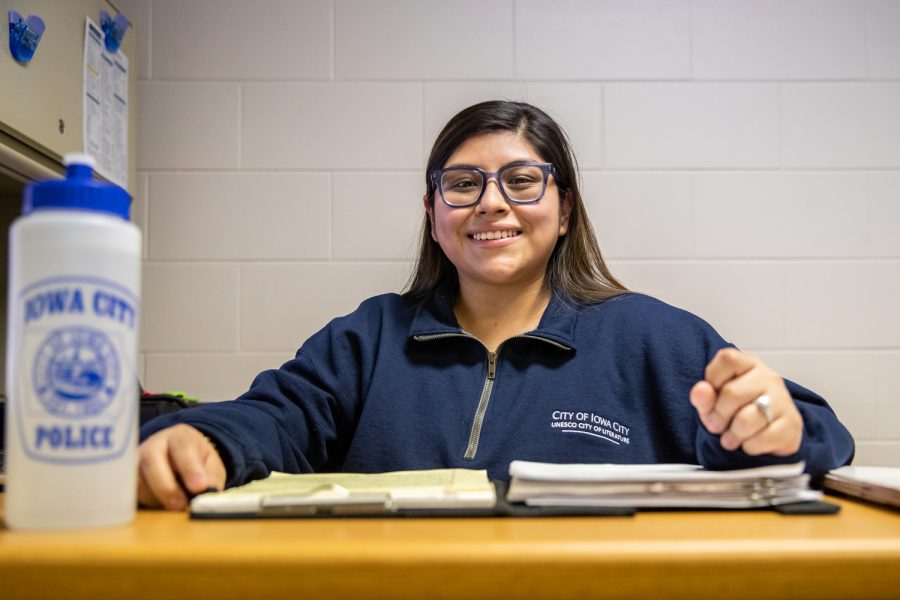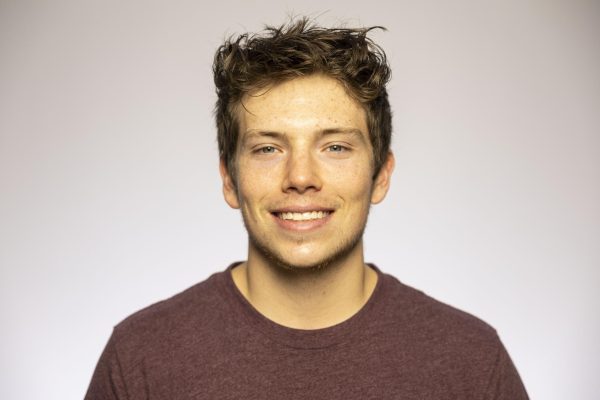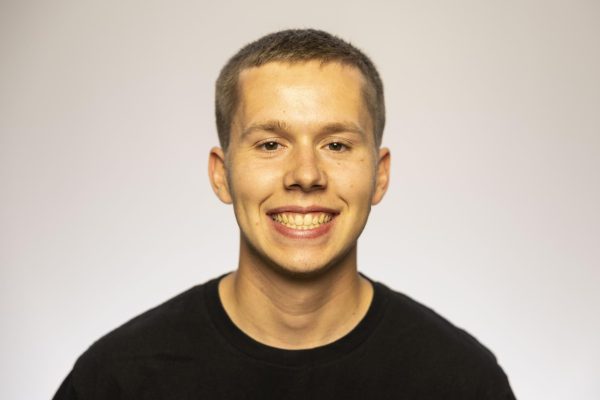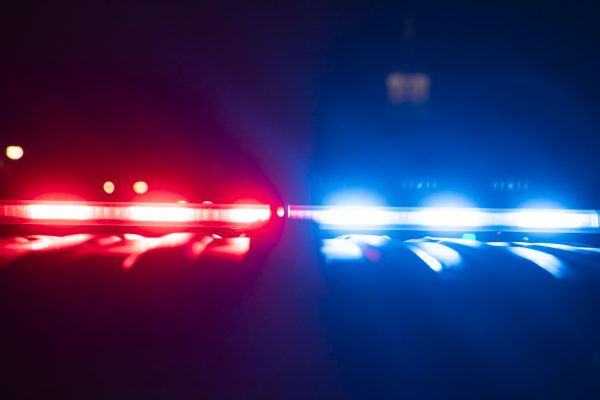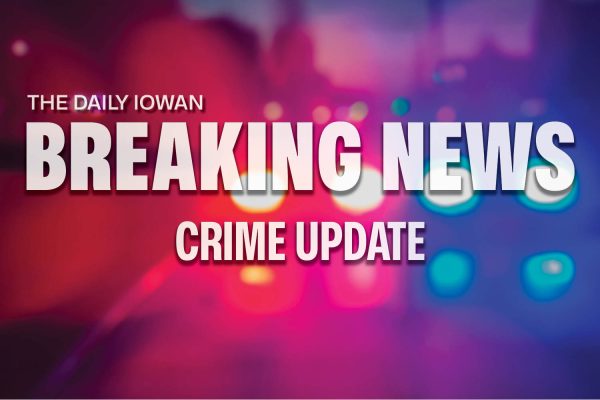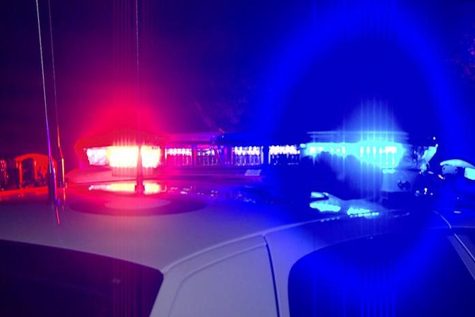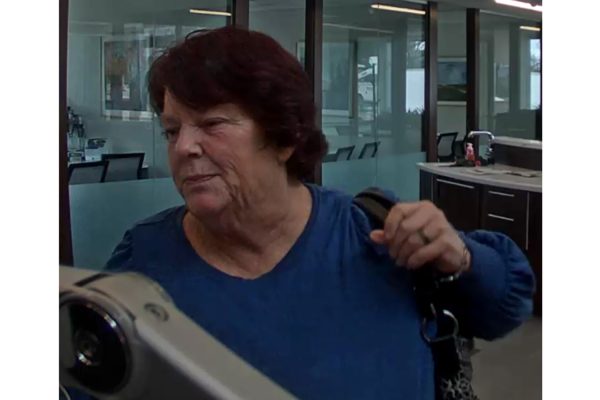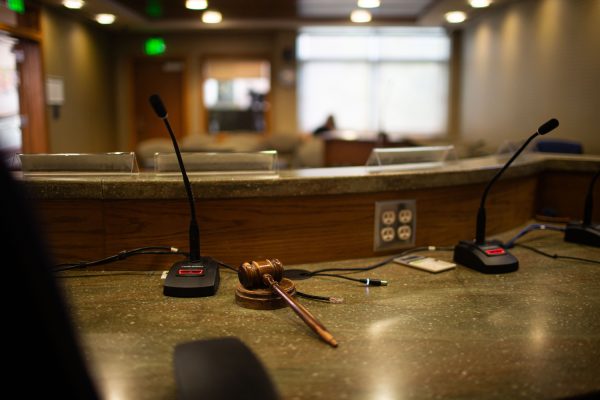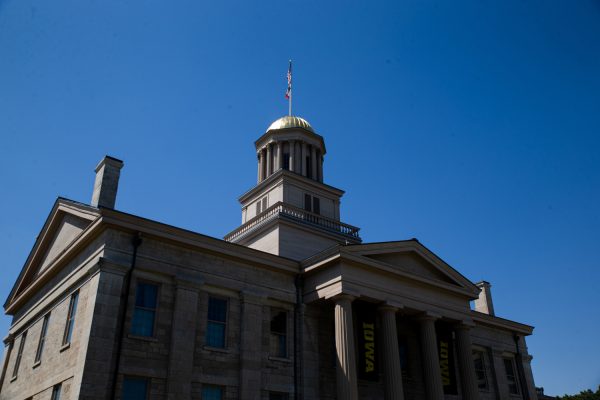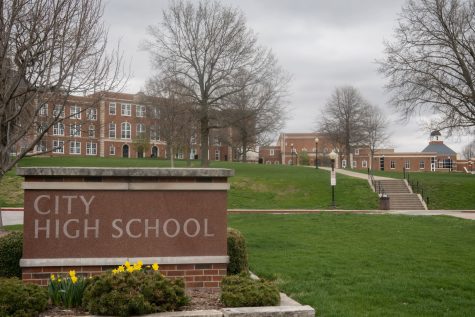Local law enforcement Citizens Police Academy rebranded to Behind the Badge
Johnson County police agencies team up for “Behind the Badge,” an offshoot of the now-defunct Citizens Police Academy. The course aims to address community concerns in a refreshed way.
Iowa City Police Department Community Outreach Assistant Daisy Torres poses for a portrait in the Iowa City police station on Thursday, Feb. 3, 2022. The Behind the Badge series will begin on March 23. The series is less time intensive than the Community Police Academy (CPA) and depending on its success it could be offered again in conjunction with CPA. (Ayrton Breckenridge/The Daily Iowan)
February 3, 2022
Local law enforcement agencies in Johnson County are offering citizens an inside look at how police departments operate.
“Behind the Badge” is a four-week course where members from The Iowa City and North Liberty police departments, Johnson County Sheriff’s Office, and University of Iowa Department of Public Safety will provide insight on the training officers receive, as well as information from community partners.
The course is an offshoot of the Citizens Police Academy course, which was canceled this year because of the COVID-19 pandemic.
The Citizens Police Academy was traditionally open to 50 participants, but Behind the Badge is limited to 25 and selected on a first-come, first-serve basis.
Daisy Torres, Iowa City Public Safety community outreach assistant, said Behind the Badge emerged because of a desire from local law enforcement to provide a program this year after the Citizens Police Academy was not feasible.
Torres said the agencies involved wanted to include some familiar topics from the academy, while also incorporating new topics that are unique to the community.
“We knew that if we were able to talk more in-depth and with the refreshed look on these topics community members would be intrigued,” she said. “So, showing that there is a very wide scope of things we’re able to do.”
The course is offering a new segment that police say covers concerns from members of the community who have hesitations about law enforcement, Torres said.
“The fair and impartial policing component is just making sure that even though some things may seem daunting to some people, in reality, there is a purpose for everything we do,” she said.
Other course topics include teachings on K9 officers, bomb squad, special response teams, and crisis intervention, as well as information from community partners.
Some of the community partners include the UI’s Rape Victim Advocacy Program and Iowa City’s Domestic Violence Intervention Program.
Alton Poole, UI Department of Public Safety community outreach officer, who will lead the section called the fair and impartial policing training, said the benefit of addressing this topic is that it gives an opportunity to educate the community about implicit biases, and how not only police officers have them.
“Everybody has implicit biases, and implicit biases are just the stereotypes that we have on a subconscious level,” he said. “The program also focuses on procedural justice, because if we don’t practice procedural justice, then how do we establish legitimacy within a community?”
Poole said he hopes this course will help restore the trust that community members have with the police by showing that there is more to officers besides just their title.
“Police officers are not hatched, they come from the community. They can be the person in your place of worship or your child’s little league coach,” he said. “So we want to actively engage and encourage people from the community to continue to take ownership to help us learn and grow, and in some cases heal.”
The course will take place on Wednesday nights, March 23 to April 6, 2022, at the Joint Emergency Communication Center in Iowa City. The cost is $10.



